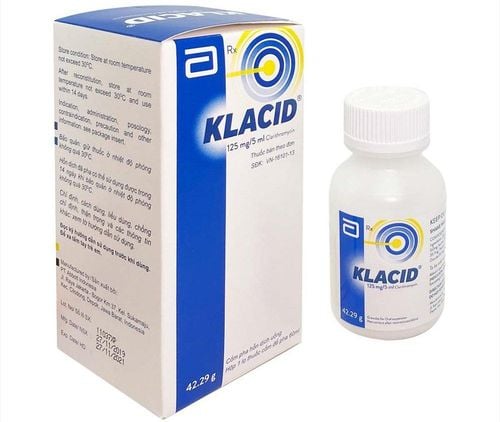Article by Pharmacist Huynh Xuan Loc – Pharmacy Department – Vinmec Central Park International Hospital
Flurbiprofen lozenges, commonly known by the brand name Strepsils Maxpro, are a local pain-relieving and anti-inflammatory medication. This drug belongs to the non-steroidal anti-inflammatory drugs (NSAIDs) group, which helps regulate the body's pain response while reducing localized swelling, inflammation, and burning sensations. These lozenges are recommended for short-term use to relieve symptoms of sore throat, such as throat pain and burning, in adults and children over 12 years old.
1. Precautions When Using Flurbiprofen Lozenges (Strepsils Maxpro)
Strepsils Maxpro, or flurbiprofen-containing lozenges, is an over-the-counter medication, meaning it can be purchased without a prescription. However, users should carefully read the instructions and adhere to the recommended dosage.
The lozenges have a mild sweetness due to their honey content and should be taken by sucking and dissolving the lozenge completely in the mouth. It is advisable to move the lozenge around the mouth to avoid irritation caused by prolonged contact in one spot.
The recommended dose is the lowest effective amount, typically one lozenge every 3–6 hours, with a maximum of 5 lozenges per day. Prolonged use beyond three days is not advised unless directed by a physician.
Flurbiprofen lozenges are symptom-relieving only, and if symptoms persist or worsen after three days of use, patients should seek medical advice for appropriate treatment.
It is essential to inform a doctor or pharmacist about existing conditions such as asthma, allergy history, heart, kidney, or liver issues, or a history of stroke, inflammatory bowel disease, or autoimmune disorders for proper guidance. Older adults should exercise caution when using flurbiprofen lozenges due to a higher risk of side effects compared to younger populations.
Overdosing on the medication can increase the likelihood of adverse effects such as drowsiness or nausea. In such cases, patients should promptly visit a medical facility or consult their physician for appropriate management.
Do not use flurbiprofen lozenges if:
- The patient has a history of allergy to flurbiprofen or any of its components (honey, lemon flavoring, peppermint oil, etc.).
- There is a history of allergy to aspirin or other NSAIDs, which can manifest as symptoms such as asthma, wheezing, shortness of breath, runny nose, facial swelling, or hives.
- The patient has or has had peptic ulcers or recurrent gastrointestinal bleeding (defined as two or more episodes of significant ulceration or bleeding).There has been a history of gastrointestinal bleeding, perforation, or bowel inflammation caused by NSAIDs.
Patients should avoid doubling doses to compensate for missed doses and should not use the medication during the third trimester of pregnancy. If pregnant in the first or second trimester, consult a doctor before use to minimize risks to the mother and baby.
As an NSAID, flurbiprofen should not be used concurrently with other NSAIDs (e.g., celecoxib, ibuprofen, diclofenac, piroxicam) or high-dose aspirin (over 75 mg/day) to reduce the risk of adverse effects. Patients with severe heart failure, kidney failure, or liver failure are also not advised to use flurbiprofen lozenges.

2. Side Effects of Flurbiprofen Lozenges
Like all medications, flurbiprofen lozenges may cause certain side effects.
Allergic reactions to the drug may present with symptoms such as facial swelling, tongue or throat swelling leading to breathing difficulties, wheezing, increased heart rate, or in severe cases, a drop in blood pressure. Skin reactions like rashes, itching, peeling, or scaling can also occur. Immediate medical attention is required if these symptoms arise.
Other common side effects include dizziness, headaches, throat irritation, mouth ulcers or pain, paresthesia or irritation in the mouth lining, nausea, diarrhea, or skin itching. Patients experiencing these symptoms should inform their doctor or pharmacist for appropriate advice.
3. Drug Interactions
Patients should notify their doctor if they are taking any of the following medications, as interactions with flurbiprofen may occur:
- Low-dose aspirin (up to 75 mg/day).
- Other NSAIDs (e.g., celecoxib, meloxicam, ibuprofen) or corticosteroids (e.g., prednisolone, methylprednisolone).
- Medications for hypertension or heart failure (e.g., cardiac glycosides).
- Diuretics.
- Antiplatelet or anticoagulant drugs.
- Abortion-inducing drugs such as mifepristone.
- Antibiotics from the quinolone group, such as ciprofloxacin.
- Medications for autoimmune diseases or immunosuppressants, such as tacrolimus, methotrexate, or cyclosporine.
- Antiepileptic drugs like phenytoin.
- Oral diabetes medications.
- HIV medications like zidovudine.
- Gout medications like probenecid and sulfinpyrazone.
Combining these drugs with flurbiprofen may increase or decrease therapeutic efficacy or cause toxicity. Each case requires careful consideration and consultation with the treating physician.
Please dial HOTLINE for more information or register for an appointment HERE. Download MyVinmec app to make appointments faster and to manage your bookings easily.
To arrange an appointment, please call HOTLINE or make your reservation directly HERE. You may also download the MyVinmec app to schedule appointments faster and manage your reservations more conveniently.








